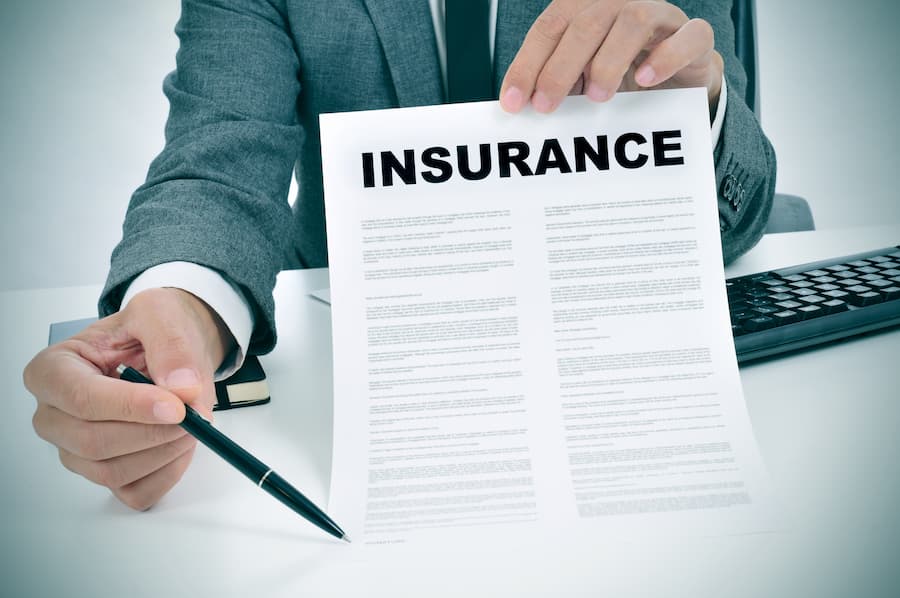Shortly after suffering an injury, the insurance company could reach out and offer you a settlement. Initially, you may feel tempted to accept a settlement offer and get the money you need. Yet, insurance companies generally don't extend fair settlements immediately after learning about a case. So, if you're unsure whether a settlement accounts for your past, present, and future losses, you should think twice about accepting.
To learn how much compensation to accept from the insurance company, a personal injury lawyer could help. They can calculate the value of your case by identifying your damages and consulting with field experts. They could also negotiate with the insurance adjuster if they don't offer a fair settlement.
Why You Should Think Twice Before Accepting a Settlement Offer
You should think carefully about accepting the insurance company’s first offer because:

It May Not Fully Account for Your Losses
If the insurance company makes an initial settlement offer a few days after the incident, you might not have had time to calculate your damages. This means you could have little to no idea of what you're owed and that you are entitled to a higher settlement. Insurance company offers rarely grant accident victims the settlement they deserve for their accident claims. When you have a lawyer, they can investigate your case, determine the value of your damages, and enter settlement negotiations with insurance adjusters to ensure you get maximum compensation for your claim.
They’ll base their calculations on:
- The severity of your condition
- The medical expenses for the care you require
- Your financial losses
- The extent of your pain and suffering
- The other party’s fault and liability
- Your quality of life
- Whether you lost a loved one due to negligence
Overall, you don't want to accept an offer until you know the total value of your damages. Once you accept a settlement agreement, you cannot go back and request more money. Signing a waiver of liability frees the insurer from any responsibility regarding your case. So, you should be careful about signing anything or accepting even a dime the insurance settlement offers.
Your Injuries Could Get Worse
Figuring out the extent of your injuries could take months. What’s more, you might not respond as expected to certain treatments, or a pre-existing health condition could complicate your recovery. With these things in mind, do not settle your claim until you fully understand the cost of your healthcare expenses, including those you haven’t incurred yet. Again, the insurance company isn’t liable for any losses once you sign a waiver of liability.
The Insurer’s Initial Offer May Not Account for Your Non-Economic Damages
The insurance company's first settlement offer might not account for your pain and suffering. Instead, it may only account for the immediate losses you're facing right now, such as medical bills and current lost income.
By partnering with a personal injury attorney, they can identify and calculate your non-economic losses. That way, you know what would count as a fair settlement offer from the liable insurer.
The Insurer Might Not Have Your Best Interests in Mind
The insurance company is a business that wants to pay out the lowest amount possible. This means that, unlike your lawyer, it's not on your side. It aims to protect its bottom line—not offer the compensation you need to move on with your life. Personal injury lawyers understand how insurance companies rush to make lowball offers to injured claimants, and they also know how to combat these practices.
The Insurance Company May Misrepresent a First-Time Settlement Offer
The liability insurer has a lot to gain by getting you to accept a low settlement. Not only can it save money, but quickly paying off your claim lets it move on to other cases, where the cycle continues.
To convince you to accept the first insurance settlement, a representative may:
- Say you have a limited time to accept an offer. The claims adjuster may pressure you into accepting a low offer, saying that you only have a limited time to accept. Your lawyer can review the liable policy’s terms and explain whether that’s true. Chances are, it’s not.
- Make false promises. The insurance company may say that you can request more money later if a settlement doesn’t fully cover your damages. In many cases, this isn’t possible. Again, once you sign a waiver of liability, your case ends, and you can’t request more funds.
- Not understand the liable policy. The claims adjuster may not understand the liable insurance policy and give false information. While not intentionally malicious, this could set back your case’s progression, along with how much you can recover.
Some insurance companies employ bad faith practices on purpose, hoping to discourage injured people from seeking compensation. Your lawyer won't cave to the insurance company's pressure. Instead, they can combat these tactics and advocate for what your family needs.
Insurance Settlements Should Account for Certain Losses
Your recoverable damages comprise the losses you suffered because of your injuries. Generally, you can seek economic and non-economic damages. These include:
Medical Bills (Past, Present, and Future)
Regardless of how good your health insurance is, you could still find yourself paying out of pocket for treatment. Yet, you can compel the liable party to pay for these expenses.
Your medical bills could comprise a sizable portion of your claim’s value and may include:
- Visits to your primary care doctor to seek treatments or get a specialist referral
- Emergency room care
- The costs of rehabilitative care, such as physical therapy, if those treatments can increase your mobility and independence
- The cost of diagnostic tests, such as MRIs and X-rays
- Medications to treat pain or avoid infections
You must have evidence to recover compensation for these losses. Your attorney can use your treatment records, doctors’ testimony, and diagnostic test results to bolster your claim.
Lost Income, Tips, Bonuses, and Other Job-Related Revenue
Your personal injury claim could include any income you lost because of the accident. Some injuries could leave you out of work indefinitely.
In those instances, you could recover lost:
- Tips
- Hourly rates
- Contracts
- Commissions
- Benefits
- Overtime
- Side gigs
- Bonuses
Employment records, pay stubs, and W2s can all support the cost of your lost income.
Future Loss of Earning Capacity
Your attorney can also seek reimbursement for loss of future earning capacity. This accounts for any long-term harm to your earning power.
You could seek this damage if:
- You cannot work the same number of hours as you did before getting injured.
- You must work a lower-paying position.
- You need accommodations that affect your earning power.
- You need job training skills to hold another position.
Your attorney may consult with professionals in your employment field to learn what would constitute a fair settlement.
Pain and Suffering
One of the hardest elements you could face after an accident includes both your emotional and physical pain. Physical pain could also include the discomfort or inconvenience your injuries caused you to deal with. Emotional pain could include any negative psychological issues you now face because of your injuries.
Examples include:
- Depression
- Anxiety
- Sleeping issues
- Post-traumatic stress disorder (PTSD)
- Anger
- Suicidal ideation
Your attorney can prove you experienced these hardships. Supporting evidence could include testimony from your doctor, friends, family members, and therapist.
Other Non-Economic Damages
Pain and suffering is just one non-economic damage you can pursue in the aftermath of a fall, collision, or another injurious incident.
Depending on the extent of your condition, you could also seek financial recovery for:
- Disability, which reflects any limitations to your day-to-day life
- Scarring/disfigurement, if your injuries will affect your physical appearance
- Loss of consortium, if the accident claimed your loved one’s life
Some insurance companies are hesitant to pay for non-economic damages because these expenses don’t come with dollar values. Yet, your lawyer can support the cost of these damages by asserting various aspects of your situation, including the trauma you endured.
Out-of-Pocket Expenses
Any type of accident could cause losses that you might not think about without the help of an attorney. For instance, did you know you could recover the cost of anything you spent out of pocket?
These expenses could include:
- Travel costs: If you have to see a specialist far away, you could include the cost of gas to get there. You could also include the cost of accommodations if you have to stay in a hotel to get medical treatments from a specific specialist.
- Wheelchairs and other assistive devices: If you have lost some or all mobility, you may need a wheelchair to get around. You could include the cost of the wheelchair in your claim. You could also recover the cost of any other assistive device, such as a cane, crutches, or neck brace.
- In-home accommodations: Depending on your injury, you might have to make accommodations to your home. For example, if you have a lot of stairs and cannot walk, you could need a stair lift. You may also require wider doorways or a wheelchair ramp. Compensation, whether through a claim or lawsuit, could account for those modifications.
- Childcare costs: When you get medical treatments or travel to see a specialist, you could include childcare costs if you had to pay for someone to watch your children during these treatments. Childcare costs can add up, especially if you receive treatments or have young kids.
You shouldn’t have to pay anything because of your injuries. The liable party should handle these expenses, not you.
You Have Options Aside From Filing an Insurance Claim
If the insurance company refuses to offer what you need, you have options; it’s not the end of the line for your case.
Your lawyer may suggest:
- Going to mediation. At mediation, you and the other party sit down with a neutral mediator. They try to guide you both toward a fair resolution out of court. Some states require you to try mediation before filing a lawsuit.
- Filing a lawsuit. Most personal injury lawsuits don't make it to the courtroom. Yet, if yours does, your lawyer can manage the many obligations that come with litigation, such as cross-examining witnesses and presenting decisive evidence.
Your personal injury attorney can advise you on other considerations that could promote your case's outcome. They have one goal: to recover compensation for your losses.
Your Legal Team Should Offer Comprehensive Support
When you suffer injuries in an accident, hiring an attorney offers many benefits—with peace of mind among them.
They can do everything in their power to resolve your case, which may include:
- Handling all case-related communications: Your attorney can handle communications with everyone involved in your case, including claims adjusters, eyewitnesses, and the other party’s lawyers. They can also speak to your medical team to learn about the severity of your injuries.
- Evaluating your case: An attorney can evaluate your damages to determine if you should accept the insurance company’s first offer. This will offer invaluable insight into your case’s true value.
- Writing and sending your demand letter: If you haven’t yet filed an insurance claim, your lawyer can write and send a demand letter to the liable insurer. This document will outline the severity of your condition, the amount you’re requesting, and other facts of your situation.
- Handling negotiations: Personal injury law firms understand the tricks insurance companies use to withhold fair compensation. Your lawyer can combat these strategies and advocate for what you deserve.
- Managing your lawsuit’s obligations: If you cannot settle with the insurance company, your attorney can file a lawsuit. This involves filing your case, taking depositions, and understanding courtroom procedure.
What's more, your lawyer also understands the many deadlines surrounding your case. One of those deadlines is the statute of limitations. You generally have anywhere from one to five years to file, depending on where you live and who caused your accident.
Before You Accept a Settlement Offer, Speak to a Lawyer

The personal injury lawyers at Morris Law Accident and Injury Lawyers offer a free consultation to discuss your case. If you choose to retain our legal services, we can seek compensation for each of your losses, including those you haven't incurred yet. Therefore, you want to find a lawyer who has your best interests at heart. As noted, many law firms offer free case reviews where you can explore your options.







